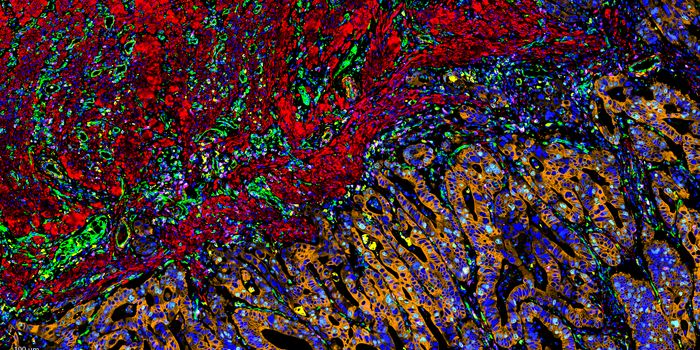"Patrolling monocytes" are white blood cells in the bloodstream that continuously check for cellular debris and potentially harmful inflammatory cells. A new study from the La Jolla Institute for Allergy & Immunology (LJI) has shown monocytes blocking the spread of lung cancer in a mouse model.
Catherine C. Hedrick, PhD, from LJI says "these cells recognize and could help destroy early metastasizing tumor cells in the blood."
Scientists are conducting further studies to determine the immunotherapeutic capabilties of these cells.
Lung cancer is the number one cause of cancer death and the "second most common cacner among both men and women in the U.S." (
CDC). The top two causes of cancer are smoking and radon exposure.
In 2011, the same group from LJI discovered a gene, Nr4a1 that was required by mice for monocyte survival. Experimental knock out mice lacked monocytes without the gene. The group fluorescently tagged melanoma cells in these mice to see how the mice responded to the cancer invasion without monocytes. As expected, the melanoma cells metastacized to the lung more in Nr4a1 knock-out mice than in control mice who had normal amounts of monocytes.
Next in the experiment the scientists "rescued" the knock-out mice by injecting monocytes into the bloodstream before before injecting the melanoma cells. The rescue was successful in this situation and the monocytes blocked metastasis, but when the monocytes were injected
after the cancer cells, metastasis was not contained. These results put into question the potential for monocyte treatments to be more than preventative immunotherapy.
Although the complete interaction between monocytes and cancer cells is not yet understood, scientists do know that monocytes stop metastasis by recruiting natural killer cells to attack and kill cancer cells and by scavenging tumor cell debris. Tumor cell debris is thought to inhibit the inflammatory response.
There's also a possibility that monocytes could be used to protect other organs from metastasis.
The lead author on the monocyte studies, Richard Hanna, PhD, looks ahead to configuring a way to utilize monocyte capabilities to battle cancer cells. "The next step would be to try to augment existing immunotherapy approaches to prevent tumor metastasis by identifying reagents to increase the number or activity of patrolling monocytes, either as pharmaceuticals or possibly by transferring cells into a patient," he explains.
After leaving the bloodstream, monocytes transform into macrophages upon entering the tissues. Check out the video below to see macrophages "eat" invading organisms.
Source:
News Medical









